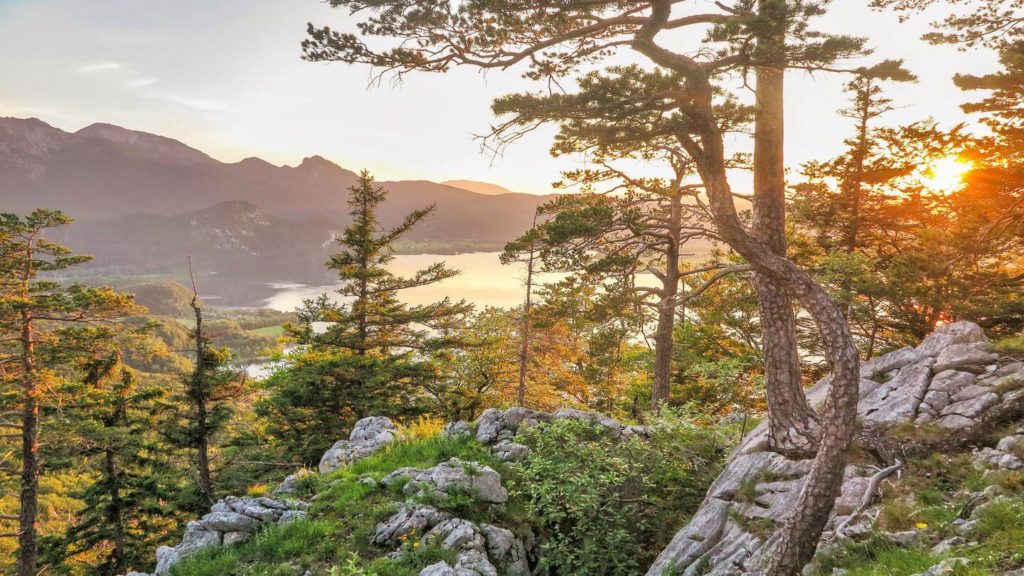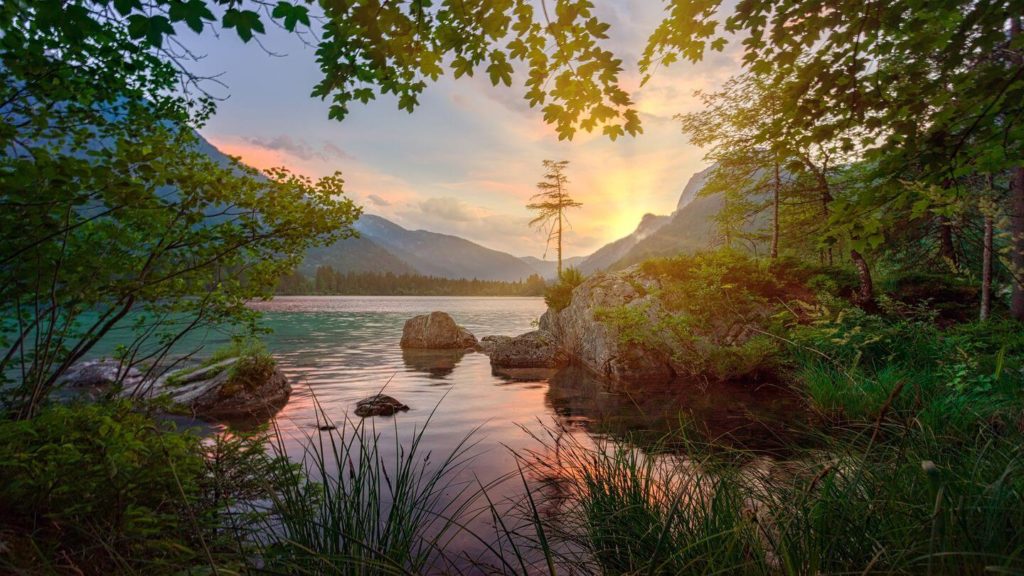Recently updated on July 5th, 2023 at 02:26 pm
Most of us have felt homesick at least once in our lives. That craving for a soft bed and your own pillow, or that urge to hug your family and your pets. But have you ever felt farsick – a travel ache or yearning to go to some distant place you’ve never been? Sound familiar? That’s fernweh, a German idea that literally translates to farsickness.
What is fernweh?


The word fernweh is a combination of the words fern, meaning distance, and wehe, meaning an ache, misery or sickness. It translates to ‘far woe’ or an ache to explore far-flung places. It’s the opposite of heimweh (homesickness), and it’s a pain many of us are feeling now more than ever.
As travellers, our natural instinct is to dream of the next place we want to explore. But since we’ve all been playing our part and staying home of late to help prevent the spread of the coronavirus, our longing for the great outdoors is stronger than ever.
And it’s more than the feeling of ‘wanderlust’ we all know. The Germans gave us that word too, combining the word wandern, meaning wander, and lust, to describe a passion for exploration. While wanderlust expresses a desire for travel, fernweh takes that idea and turns it up a notch.
It’s like a knot in your stomach or a wedge in your mind, filling you with a deep longing or even pain that urges you to get outside and discover the nooks and crannies of the planet.
RELATED CONTENT: These are the places our Trafalgar team are dreaming of visiting right now
Where did fernweh come from?


Most people agree that the word was coined by Prince Hermann Ludwig Heinrich von Pückler-Muskau, a German nobleman, accomplished artist and avid traveller. He published a number of books about his adventures around Europe and Northern Africa, under the pen name “Semilasso”.
He used the word fernweh in his 1835 book, ‘The Penultimate Course of the World of Semilasso: Dream and Waking’. Semilasso said he never suffered from homesickness (heimweh), but instead was racked by the opposite sickness – fernweh.


In 1902, fernweh appeared in English for the first time. Author Daniel Garrison Brinton used the word in his book, ‘The Basis of Social Relation’. He described it as a “goading restlessness” for travel. By the late 20th century, fernweh was taking Germany by storm. German travel agencies used the word in their advertising campaigns to seduce people to dust off their passports and explore the world.
New technologies in the travel industry gave way to a world where international travel was easier than ever. Combine that with a longing to break free from everyday life and escape to sunnier, carefree shores, and we can see why the feeling of fernweh surged through the German public – and the rest of the world!
RELATED CONTENT: 9 places around the world you can visit without leaving home
How do we cure fernweh?


You can’t easily squash the feeling of fernweh. There’s no simple remedy for the travel ache and you might spend your whole life exploring the world and still want to see more.
C.S. Lewis summed it up nicely in ‘Mere Christianity:
“If I find in myself desires which nothing in this world can satisfy, the only logical explanation is that I was made for another world.”
C.S. Lewis
But we don’t think that’s a bad thing! There are endless ways to soothe the aches and pains of fernweh, whether you embark on a trekking expedition through the Himalayas, or go for a walk in a forest you’ve never explored before.
Dreaming of faraway lands


Atlas Obscura asked their readers to describe the places that gave them a travel ache for somewhere they’ve never been. An overwhelming number of responses said Ireland, Scotland, England and Iceland invoked a sense of fernweh. With misty lakes, wild highlands and ancient history, there’s no wonder so many people feel a longing for these places.
Fictional places were also high on the fernweh-inducing list. Readers dreamed about visiting iconic imaginary worlds like Narnia from the fantasy novels by C.S. Lewis, and Middle Earth and The Shire from The Lord of the Rings and The Hobbit by J.R.R. Tolkien. We’re still fantasising about receiving our letters from Hogwarts!
Many people also yearn to be in nature and that’s not surprising since greenery is known to be good for our health. Getting out into nature lowers our stress levels and is great for our mental health. Perhaps we feel a sense of fernweh for the great outdoors because we long to get back to our roots on earth. We even pine for different seasons, like spring fields and sun-kissed shores.


Russian-American author Vladimir Nabokov described the feeling of fernweh well in his 1926 novel ‘Mary’:
“Nostalgia in reverse, the longing for yet another strange land, grew especially strong in spring.”
Vladimir Nabokov
We’re now in the midst of spring in the Northern Hemisphere and wishing more than ever we could get out into the world. If you’re feeling the ache of fernweh, you’re not alone. We’re feeling it too, but once we beat the coronavirus, we’ll be packing our bags and jumping straight back into the great outdoors.
Have you ever felt a sense of fernweh or a travel ache for somewhere you’ve never been before? Let us know in the comments below!